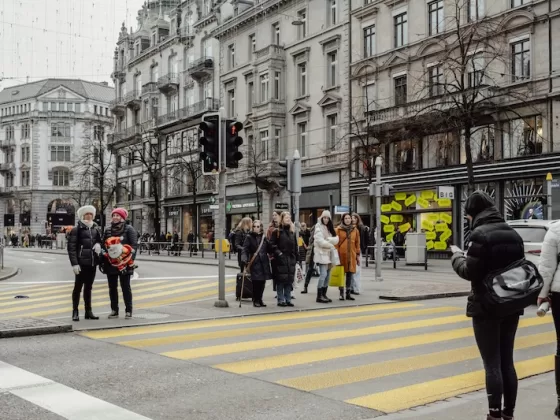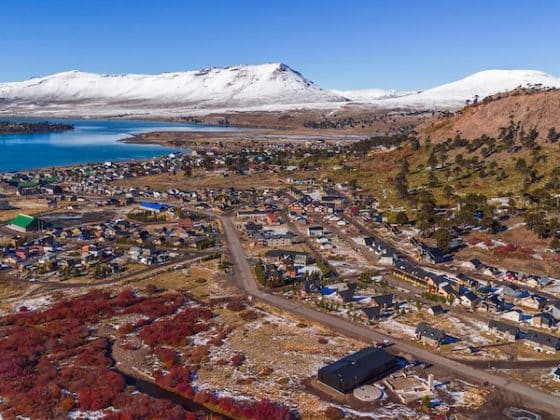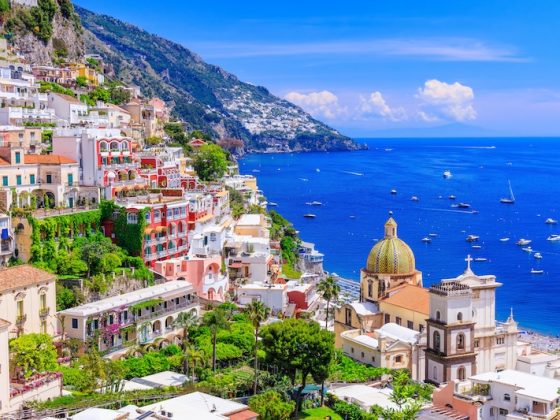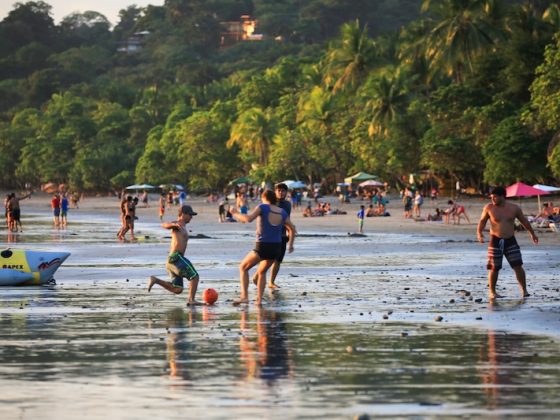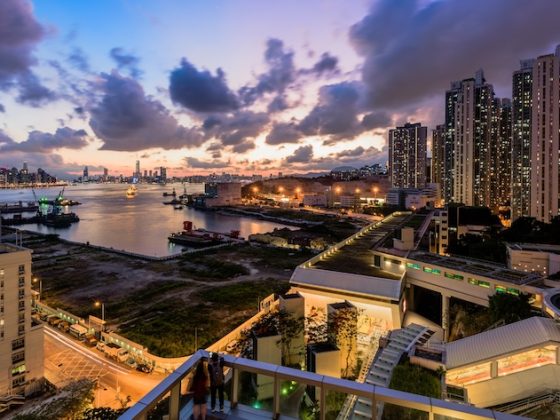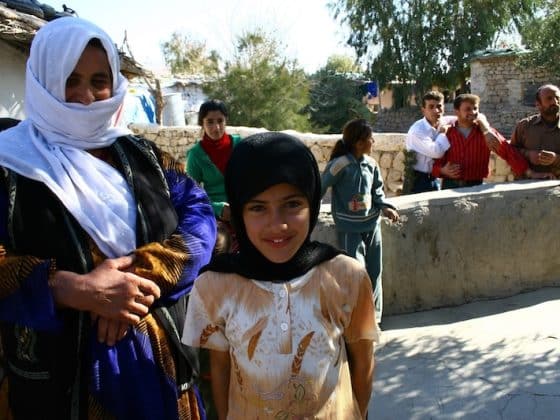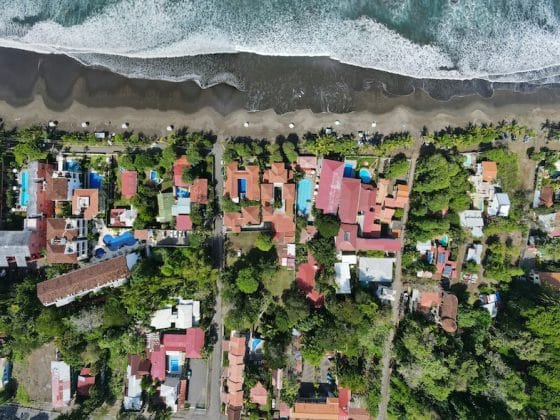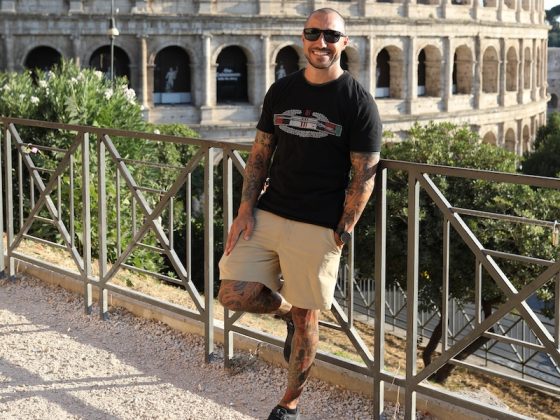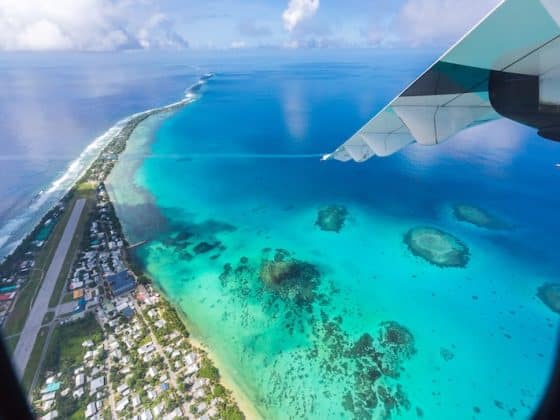In a country grappling with rising political tension, unaffordable healthcare, and a growing loss of public trust, the idea of leaving America is a serious and increasingly common conversation. Political scientist Dr. Shawn C. Fettig is listening to that conversation closely.
Dr. Fettig has hosted Deep Dive with Shawn since 2022, engaging authors, researchers, politicians, and activists in thoughtful, long-form discussions about democracy, global stability, governance, and the systems that shape our lives. This summer, he launched Leaving America, a bold new 12-part podcast series that brings together dozens of experts and expats to explore why more Americans are deciding to move abroad—and how they’re doing it.
From residency visas and second citizenships to international taxes and the emotional reality of saying goodbye, Leaving America offers both practical advice and deep reflection. This isn’t just a travel podcast—it’s a grounded, clear-eyed look at a growing shift in how Americans define safety, freedom, and home.
In this interview, Dr. Fettig opens up about the ideas behind the show, the people he spoke with, and the powerful moments that stayed with him.
What was the catalyst for creating Leaving America, and when did you first realize this conversation needed to be had?
I should probably start by admitting that this idea has been taking shape in my mind for quite a while. Like many Americans, I grew up hearing about the concept of American exceptionalism—the belief that the U.S. is the greatest country on Earth, a place where opportunity flourishes and freedom is unmatched. I grew up poor in middle America. Realizing I was gay as a teenager added another layer. Life in America under those circumstances in the ’90s wasn’t great. The challenges didn’t just come from my peers. They came from adults, too—teachers, religious leaders, and elected officials. People who were supposed to provide guidance and protection. So, I’ve always been skeptical of the idea that America is uniquely great.
I’ve been fortunate to travel extensively, live abroad, and immerse myself in other cultures. What’s become increasingly clear is this: while the U.S. has many strengths, other countries do too—and in some cases, they do things even better. The U.S. does not have the best healthcare. With the proliferation of guns and polarization, it is far from the safest place in the world. Income and wealth inequality in the United States means that most people will hustle their entire lives just to meet basic needs, while many other countries offer more equal systems.
Work-life balance in the United States is often, at best, non-existent, and at worst, skewed heavily in favor of work over life. Americans are increasingly unhappy, anxious, and burned out. This isn’t to say that other countries don’t have their own version of these problems—I’m sure they do. But here, it’s reaching a fever pitch and that is really threatening to our emotional, mental, and even physical wellbeing.
The Catalyst for Leaving America
I suppose the last straw though—the catalyst for Leaving America—really has to do with the current state of our politics and governance. I’m a political scientist by training, and it’s been increasingly difficult to see what’s happening in this country as anything but alarming. Over the past decade, we’ve normalized political dysfunction, and more recently, we’ve seen a disturbing rise in dehumanizing rhetoric and outright political violence. Especially during the most recent election season, it’s become clear—this is no longer a country where one can reliably count on dignity, safety, or peace. America’s best days feel like they’re behind it.
Taken together—our failure to live up to the hype, my own curiosity and experience with the wider world, and the grim outlook for the U.S. as a stable democratic experiment—this feels like the right time to have this conversation, to be seriously considering if moving out of the United States might be the most rational, self-preserving choice. And I know I’m not the only one thinking that.
Work-life balance in the United States is often, at best, non-existent, and at worst, skewed heavily in favor of work over life. Americans are increasingly unhappy, anxious, and burned out.
Read more like this: The New American Dream? It’s Moving Abroad
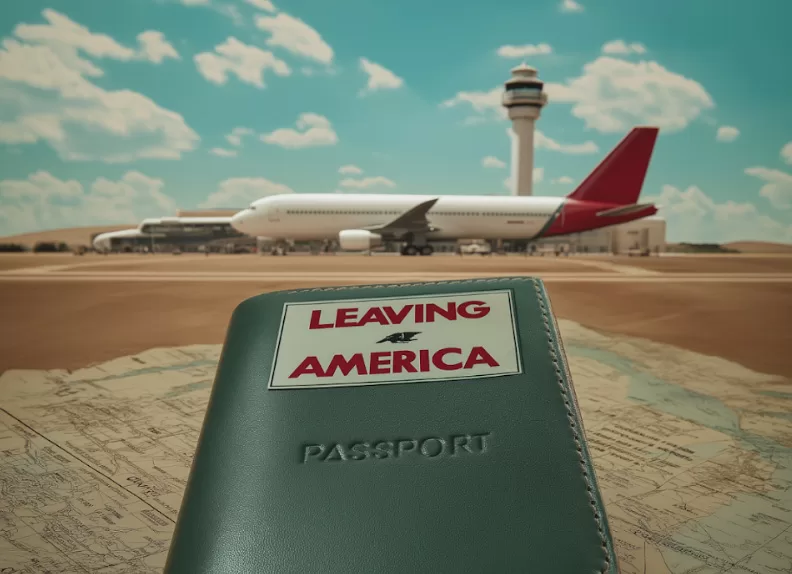
How does Leaving America stand apart from other expat or relocation podcasts in both tone and purpose?
I didn’t want this to be just another “life abroad” show with romantic anecdotes and travel tips. Leaving America is grounded in serious personal and political reflection. It’s as much about why people are leaving as it is about where they’re going or how they’re getting there. The goal was to center real voices—people who’ve made the move and those helping others do the same—while also exploring the broader systems that make leaving feel like the only option for some.
I didn’t want this to be just another “life abroad” show with romantic anecdotes and travel tips. Leaving America is grounded in serious personal and political reflection.
Why do you think the “Leave America” movement is gaining momentum now, and what’s different about this cultural moment?
I think we’re witnessing a perfect storm of factors all converging at once. As the world becomes increasingly connected—and in many ways, smaller—it’s easier than ever to imagine a life elsewhere. You can wake up in New York, have lunch in Paris, and watch the sun set in Thailand. This accessibility of global travel is reshaping how we think about home, place, and possibility. This means that we can imagine living somewhere else in ways that we just couldn’t in the past.
At the same time, there’s a growing recognition that many of the things Americans have long taken for granted—higher-than-average wages, a strong social safety net, unlimited abundance and convenience, stable infrastructure, a commitment to civil liberties—are either things of the past or illusions that were never universally true to begin with. If you’ve traveled outside the U.S., you may have noticed that food and housing are often more affordable, healthcare is accessible, the roads are fine, the internet works, and people generally co-exist peacefully.
Everyday American Life
Finally, I think the increase in violence in everyday American life is just taking a toll. I don’t have kids myself, but I have friends who do, and the anxiety they feel sending their children to school each day—wondering if they’ll come home alive—is staggering. Just saying that out loud is crazy.
More and more people are starting to realize this and reckon with it. And once you allow yourself to imagine a life beyond these anxieties and confront the emotional barriers—like maintaining relationships back home, distinguishing needs from wants, and being mindful about how and where you spend your money—then the rest of it, the logistics of moving abroad, start to feel manageable. The consistent message I heard from people I interviewed was that it’s doable. The challenges are surmountable.
The fantasy of American abundance is unraveling. People are waking up to the idea that life might actually be better somewhere else.
Read more like this: The Ultimate Checklist for Moving Abroad
Who are you speaking to with this podcast—people dreaming of leaving, or those already taking concrete steps?
From the start, I wanted to focus on two distinct groups: expats and experts. That is, people who’ve made the leap and those who help others do the same. I’m fully aware that moving abroad isn’t always seamless, emotionless, or even successful. So, many of my conversations with expats didn’t just focus on how they made it work, but also on the hurdles they hit along the way—and what they might have done differently if given the chance.
The experts serve a similar purpose. Take taxes, for example. The United States is one of the very few countries—maybe even just one of two—that taxes its citizens on worldwide income, no matter where they live. So, if you’re earning income abroad, you may have to pay taxes in your new country and potentially in the U.S. as well. At a minimum, you’ll still need to file. It sounds overwhelming—and for good reason—but the experts I’ve brought in break it down: how it works, what to expect, what the challenges are, and how they can be best managed.
Read more like this Legally Reduce your Tax by Moving Abroad
I don’t want to paint the picture that moving abroad is a perfect solution to anything or that it’s easy. It’s not. Challenges exist, and they’re often very personal. But for most people—not everyone, but most—they’re manageable. If finances are tight, consider countries with low living costs and affordable entry requirements. Worried about infrastructure? Many nations offer reliable systems. And when it comes to safety, several places are statistically far safer than the US.
Leaving America is designed to give voice to these concerns, through the real stories and experiences of people who’ve made the move, and the insights of the people who help them do it.
Many of my conversations with expats didn’t just focus on how they made it work, but also on the hurdles they hit along the way—and what they might have done differently if given the chance.
In the conversations you’ve had, how do guests tend to frame their decision to leave—as political, practical, or something else entirely?
The concerns really run the gamut, but the issue that came up most consistently was affordability. The reality is that the United States is no longer an affordable place to live. We’re in the middle of a housing crisis—not just in terms of availability, but also cost. When you layer that with the crushing burden of debt, stagnant wages, and extreme wealth inequality, it just paints a very bleak picture for anyone hoping to achieve some semblance of independence or stability.
Healthcare costs came up a lot, as well. If you’ve grown up outside the States, it is truly mind-boggling how the American healthcare system works. I can’t even really explain it to non-Americans, because it’s so convoluted, opaque, and, frankly, cruel. At its core, there’s a deep and very real fear in the U.S. about getting sick—because illness often comes with financial ruin. That’s a fear that doesn’t exist in many other countries.
Safety came up quite a bit, too—especially concerns around gun violence and the political climate. There’s a rising sense of unease, a growing fear about what it means to live in the U.S. right now. Several of the immigration experts that I interviewed for the series pointed out that while there is always an uptick in American interest in moving abroad during election years, what they’re seeing now is different. People are actually following through in ways they haven’t seen before. And much of that urgency is tied to concerns over reproductive rights, LGBTQ+ discrimination, and the very real threat of political persecution.
There’s a deep and very real fear in the U.S. about getting sick—because illness often comes with financial ruin. That’s a fear that doesn’t exist in many other countries.

What emotional threads or unexpected insights emerged during the interviews that shifted your own perspective?
What struck me most during these interviews was just how genuinely happy people were with their decision to leave the U.S. I don’t know if it’s something inherent to the kind of person who decides to move abroad, or if it’s the experience itself that brings it out—but more than likely, it’s a bit of both. Everyone had their share of challenges—some even had full-blown horror stories—but none of them were discouraged by it. They expected setbacks, learned from them, and kept moving forward.
There are so many points along the relocation journey that could deter someone. Managing the visa process. Leaving a steady job. Learning a new language. Living on a different budget. Deciding what to take, what to leave. Saying goodbye to friends and family. Finding housing in a city you’ve never lived in. Any one of those could feel like a dealbreaker—but when stacked together, they can feel overwhelming.
Moving abroad can make you feel very exposed and very vulnerable. In my experience, you have to learn to get comfortable with it. You will file the wrong paperwork. You’ll forget essential documents. You might get denied for a visa. You’ll board the wrong bus, mangle pronunciations, and you’re going to have to ask for help. It’s not graceful.
But the happiest people I interviewed for Leaving America embraced that discomfort. They didn’t expect perfection. They had a clear vision, stayed committed, and adapted as needed. And none of them regret the decision to move abroad.
The happiest people I interviewed for Leaving America embraced that discomfort. They didn’t expect perfection. They had a clear vision, stayed committed, and adapted as needed.
What kinds of hurdles—emotional, logistical, or systemic—do people most commonly face when trying to leave the U.S.?
I’ve touched on a few of the big hurdles already—like finding the right destination, downsizing your life, and saying goodbye to loved ones. But one of the most practical and immediate barriers is the cost of moving abroad. It is true that not everyone has the financial means to make the move, and I don’t want to suggest otherwise. There’s a common belief that you have to be wealthy to relocate internationally—but that’s not entirely accurate.
Yes, some visa pathways come with a high price tag. Buying citizenship—through multi-million dollar investment programs—is completely out of reach for most people. And investment visas, which require purchasing property or investing in specific sectors, can also be cost-prohibitive.
But those aren’t the only options. Many countries offer much more affordable routes. Mexico, Paraguay, Latvia, France, and Spain, for example, all have visa programs with relatively low financial requirements. And work or study visas—often free or very low-cost—provide another accessible way in. So while money can be a hurdle, it’s not necessarily the insurmountable wall people assume it is.
Leaving America
Another theme that came up often in my conversations with expats was the emotional weight of “leaving America.” For some, they were surprised by the sense of grief they felt in saying goodbye to the United States itself. Even for those disillusioned with its politics or systems, the act of leaving brought a kind of melancholy that took some time to alleviate.
Related to that was something almost everyone admitted: they had to unlearn being American. No matter how open-minded or prepared they thought they were, many found themselves unintentionally bringing American expectations and cultural norms into their new environments. And they had to really work at letting those go—to adapt to a new culture with its own set of rules, norms, and expectations.
Almost everyone admitted they had to unlearn being American. No matter how prepared they thought they were, they brought expectations—and had to let them go.
What was your process for selecting the guests, and what kind of diversity or narrative arc were you hoping to create?
From the very beginning, I knew there were two things I wanted to prioritize: first, representing all continents and as many different regions of the world as possible; and second, being honest about the full spectrum of the expat experience—the good, the bad, and the occasionally ugly.
But early on in the project, it became clear that I also needed to focus on the specific needs of different kinds of listeners considering a move abroad. Not every destination works for every person. Take Dubai, for example—it’s a well-known expat hub with plenty of opportunities. But for women and LGBTQ+ individuals, it may not be the most welcoming or safe option. Rural Colombia might be peaceful and affordable, but if you’re a digital nomad who depends on strong internet or someone with mobility concerns, the infrastructure could pose serious challenges.
Finding Expats
So, I put in a lot of front-end research to find expats with a digital presence—through blogs, podcasts, or journalism—who could help bring these nuances to life. I wanted voices that would resonate with a range of listeners and speak directly to the unique considerations different communities might face. Many of the guests I spoke to ended up pointing me toward others—friends, colleagues, or acquaintances—who could offer something unique and informative. In that sense, the whole process unfolded organically.
Finding the right experts—immigration lawyers, tax professionals, and others—was actually more difficult than I’d expected. Immigration policies vary wildly from country to country, and in theory, I could have featured a different expert for every nation mentioned in the series (which would be… a lot). So instead, I narrowed the focus to professionals who could speak to some of the most popular destinations for American expats—places like Canada, New Zealand, Mexico, and France—where the demand for information and assistance is especially high.
I wanted voices that would resonate with a range of listeners and speak directly to the unique considerations different communities might face.
Is there one particular story or moment from the series that you feel truly captures the essence of Leaving America?
I actually think the first episode of the series—Should You Stay, or Should You Go—is one of the most powerful. Ironically, it’s the only episode that doesn’t focus on a specific country, region, or visa type. Instead, it’s entirely devoted to exploring the why behind the decision to leave the United States.
For this one, I leaned heavily on both the experts and expats I interviewed. A lot of the clips I used weren’t originally intended for the final cut—they came from more informal parts of our conversations, when people spoke candidly and informally about what drew them to their new homes, why they ultimately left the U.S., what they miss, and what they absolutely don’t.
In the end, I think it’s that sincerity that gives the episode a personal and reflective tone. That first episode is not a practical how-to guide. In many ways, it’s a lens through which listeners might be able to envision their own motivations, fears, and hopes about their future and where they might end up living.
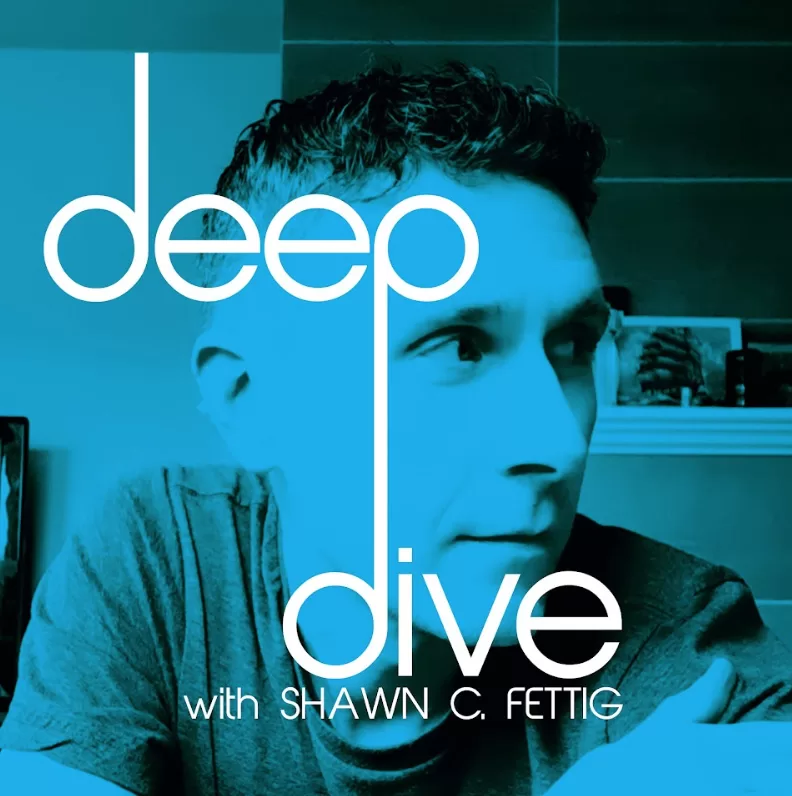
What’s the one thing you hope every listener takes away from the show—beyond the practical tools?
I didn’t really travel outside the United States until I was in my 30s, and a lot of that had to do with fear—the fear of the unknown. At that point, I didn’t have any personal experience to challenge the idea of American exceptionalism. So I believed all the usual myths: that the rest of the world was unaffordable, that healthcare was subpar, that people wouldn’t be welcoming, that I’d get robbed anywhere I went—any number of worst-case scenarios.
But once I started traveling, those assumptions started to fall apart. I realized that, in many places, life is far more affordable than in the U.S. Food and wine is almost universally cheaper. Transportation and internet are also less expensive, and often more efficient. Healthcare is not only more accessible in most countries, but dramatically cheaper. And, I’ve never felt less safe anywhere I’ve traveled than I have in the United States. That might partly be because I’m a white man—privilege plays a role, of course—but even still, I’ve been to a lot of places, and the fear I had didn’t match the reality on the ground.
It was through travel that the idea of living somewhere else began to take shape. Slowly, it stopped feeling scary—and eventually, it no longer felt impossible.
The decision to leave America is a personal one. I’m not here to tell anyone that they should. But if it’s something you’re considering, my hope is that Leaving America can help you imagine what that life might look like—and, yes, to give you the tools to start making it real.
I’m not here to tell anyone they should leave. But if you’re thinking about it, I want the show to help you imagine what that life might look like—and give you tools to start making it real.
————————
Dr. Shawn C. Fettig is a political scientist and the creator of Leaving America, a new podcast tracing the stories of those who’ve chosen to live beyond U.S. borders. Watch the Series on YouTube

